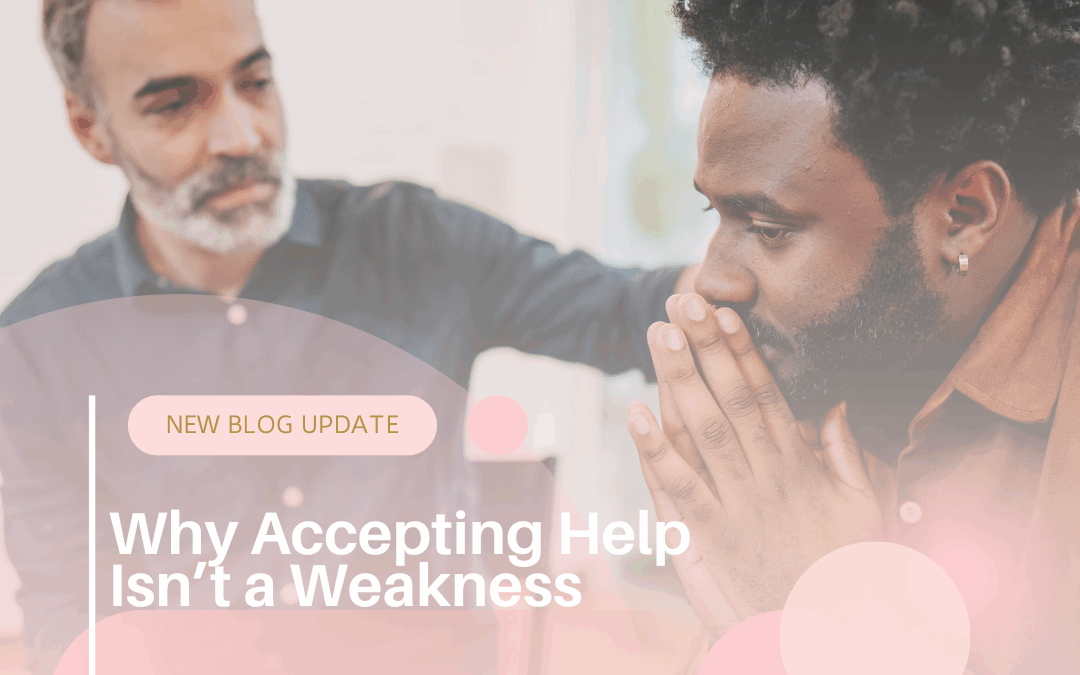There’s a quiet belief many of us carry:
If I accept help, it means I’m failing.
Maybe it started in childhood, when being “strong” earned praise.
Maybe it came from being the one others always leaned on.
Or maybe life just taught you that independence is the safest option.
So when someone reaches out with a simple offer—“Let me bring you dinner,” or “I can hold the baby while you nap”—something inside you recoils.
You smile politely and say, “I’m okay, but thank you.”
Even when you’re not okay.
Let’s talk about that.
Why Is It So Hard to Accept Help?
For many of us, accepting help triggers discomfort, even shame. We tell ourselves:
-
I should be able to handle this.
-
They’re just being nice—I don’t want to burden them.
-
What if they think I’m not capable?
At its core, this resistance often comes from a fear of being seen as vulnerable, dependent, or “too much.” We associate asking for help with weakness or loss of control. But in reality, accepting help is one of the strongest, most human things we can do.
None of us are meant to do life alone. We are wired for connection, for mutual support, for seasons of giving and seasons of receiving.
Receiving Help Is a Gift—For Both Sides
When someone offers support, it’s not just about fixing your situation—it’s about connection. It’s about love, community, and shared humanity.
Imagine it from the other side: when someone you care about is struggling, don’t you want to help? Not because they’re incapable—but because you care? Because being present for them gives you a sense of purpose and meaning?
The same is true in reverse. Allowing others to show up for you isn’t just a gift to you—it’s a gift to them. It creates intimacy, trust, and mutual care.
So when you say “yes” to help, you’re not being needy. You’re being open. You’re being real.
What Accepting Help Might Look Like
Accepting help doesn’t mean handing over control or depending on everyone for everything. It might look like:
-
Letting a friend drop off groceries or a meal without apologizing for the mess.
-
Saying yes to someone folding laundry while you rest.
-
Sharing that you’re emotionally overwhelmed and could use a check-in text tomorrow.
-
Letting your partner take over—even if they don’t do it exactly your way.
-
Telling a therapist or support group, “I’m struggling, and I don’t want to hide it anymore.”
These are not admissions of failure. They are acts of courage. They say, “I am worthy of care—even when I’m not at my best.”
Let Go of the Guilt
Guilt is loud. It tells you you’re a burden. That you should be grateful and quiet. That others have it worse.
But guilt is lying to you.
Here’s the truth: You are allowed to receive without earning it. You are allowed to be supported without having to explain why. You don’t have to wait until you’re burnt out or broken to say “yes” to help. You deserve support because you are human—not because you checked off every box first.
And the people who love you? They don’t want you to crash and burn just to feel “worthy” of their presence. They want to walk with you through it.
Let them.
You Were Never Meant to Do This Alone
Whether you’re in the early days of motherhood, navigating a crisis, or simply carrying too much—know this:
You don’t have to be the strong one all the time.
You don’t have to smile through the overwhelm.
You don’t have to hold everything together just to be lovable.
Say yes. Let the casserole come. Let your friend babysit. Let someone sit next to you in your grief. Let them see you.
And let yourself be held.
Because you are not a burden.
You are a person.
And people need people.
Always have. Always will.


Recent Comments